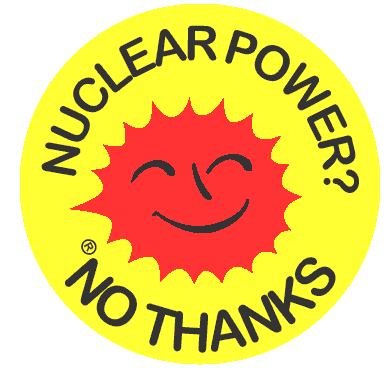
A person who is believed to be have been contaminated with radiation, wrapped with a blanket, is carried to ambulance at a radiation treatment center in Nihonmatsu city in Fukushima prefecture on March 13, 2011. (Credit: JIJI PRESS/AFP/Getty Images)
Right now our thoughts and prayers are with the brave Japanese people as they struggle to deal with the terrible aftermath of the earthquake, tsunami and now the nuclear threat. This is also a time to reflect on the risks posed by nuclear power generation and to ask if we should continue with this massive investment. Might our money be better spent on renewable energy? This letter featrured in The Guardian, Wednesday 16 March 2011: The assessment in your editorial (15 March) that “the balance of the rational argument could conceivably be more in favour of nuclear [power] in a month’s time” is not just premature but ignores a number of important factors. Most worryingly, terrorists will have seen the devastation, disruption and fear that can be caused by an attack on a reactor’s cooling system, which presents a much easier target for them than the containment vessel surrounding the core. Secondly, your claim that the renewable alternatives are “illusions” is at variance with the facts. Germany has installed more wind power capacity than the entire current UK nuclear capacity, and is adding to it at a rate equivalent to more than one new reactor a year. Furthermore, in 2009 alone Germany installed solar photovoltaic systems with capacity equivalent to approximately four nuclear reactors, and it looks like the 2010 figures will be much higher. The coalition should reverse Labour’s dangerous decision to go for new nuclear build and use the money saved, firstly to strengthen our current nuclear facilities against terrorist attack, secondly to solve the long-term nuclear waste problem and thirdly to support renewables. Emeritus Professor Keith Barnham
[](https://cdn.ecohustler.com/media/2019/03/19/korea.jpg)
SUPPORTED BY HEROES LIKE YOU
Support independent eco journalism that drives real change.Anti-nuclear protest on April 25, 2006 in Seoul, South Korea.
The case against nuclear ------------------------
(Source: http://en.wikipedia.org/wiki/Anti-nuclear_movement) Anti-nuclear critics see nuclear power as a dangerous, expensive way to boil water to generate electricity. Opponents of nuclear power have raised a number of related concerns:
- Nuclear accidents: a concern that the core of a nuclear power plant could overheat and melt down, releasing radioactivity.
- Radioactive waste disposal: a concern that nuclear power results in large amounts of radioactive waste, some of which remains dangerous for very long periods.
- Nuclear proliferation: a concern that the facilities and expertise to produce nuclear power can be readily adapted to produce nuclear weapons.
- High cost: a concern that nuclear power plants are very expensive.
- Nuclear terrorism: a concern that nuclear facilities could be targeted by terrorists or criminals.
- Curtailed Civil liberties: a concern that the risk of nuclear accidents, proliferation and terrorism may be used to justify restraints on citizen rights.
A nuclear free world is possible… it is up to us! -------------------------------------------------





